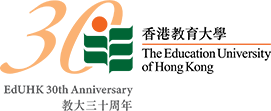Understanding the Complexity of Learner Agency of Senior Secondary Students in English Private Tutoring: A Narrative Inquiry
- Project Scheme:
- Early Career Scheme
- Project Year:
- 2019/2020
- Project Leader:
- Dr YUNG, Wai Ho
- (Department of Curriculum and Instruction)

Private tutoring has become a widespread phenomenon particularly in places where high-stakes testing and competition for higher education prevail, this project aims to understand the agency of learners in a complex educational context where mainstream schooling and EPT coexist.
Private tutoring has become a widespread phenomenon particularly in places where high-stakes testing and competition for higher education prevail. In Hong Kong, English language has the highest enrolment rate because of its importance for studies and future career. The rise of English private tutoring (EPT) has transformed students’ language learning experiences both inside and outside school, making their language learning more complex and diverse with potential influences on their agency and learning effectiveness. Despite its worldwide prevalence and significant impact on students’ learning experiences, EPT has remained under-researched. The recent “social turn” in second language (L2) research has called for an investigation in learner agency and started paying attention to its dynamic nature by taking timescales and contexts into account. Learner agency is perceived as an individual’s will and capacity to make choices and act on those choices to facilitate his/her learning. It plays a key role in students’ learning experiences. Agency and context are inter-related. Learners exercise their agency to shape the environment into one that is conducive to their learning, but their agency can also be empowered or constrained by contextual factors. Through the lens of complexity theory, this project aims to understand the agency of learners in a complex educational context where mainstream schooling and EPT coexist. Through narrative inquiry, this study will investigate the experiences of 12 senior secondary students (Form 4 to Form 6) enrolled in EPT for one year. Participants will be selected in three cram schools from a range of backgrounds (e.g., beliefs and behaviours of learning English and reasons for attending EPT courses). Data will be collected through three rounds of individual interview and three pieces of learner reflective writing, supplemented by field observations in the tutorial schools and informal conversations with different stakeholders such as schoolteachers, tutors and parents. The multiple sources of data will be compiled as narratives of learner experiences for analysis. This project will paint a comprehensive picture of language learners’ narrative experiences both inside and outside school and how they exercise their agency in the language learning process. It will add to our understanding of learner agency in current L2 research and frame a new direction for qualitative research on shadow education. In practice, the findings will yield insights into the complex relationship between private tutoring and mainstream schooling and how schoolteachers and tutors can support students to be agentic in regulating their learning.







